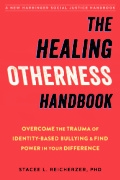Unless you’re the sort of person for whom things have come easily and without hard work, it’s probably difficult to feel especially privileged. Most of us look back in our lives and the struggles we’ve overcome, whatever they may be, and see our story so far in terms of what it’s taken to get here. To this point, we’ve climbed the mountain; stumbled, slid, and at times free-fallen along the way. Eventually though, we’ve reached wherever we are.
Surveying the landscape that surrounds us, we may encounter people who seem to be telling us how easy we’ve had it. We’re told we have “straight privilege” if we’re not lesbian, gay, or bi; “white privilege” if we’re Caucasian or mistaken to be because our skin is particularly light. I’ve even heard of “privilege of gender conformity” for those who aren’t and never were trans. We may in fact hear about all sorts of other privileges that people think we have because, seeing us wherever we stand on our individual mountains, all the privileges we’ve lacked are not readily apparent.
Meanwhile, we look down at our bloodied hands and feet that have scaled the mountain, still feeling the cuts, bruises, and parts that are broken by our numerous falls. We hear the word “privileged” as an accusation that we’ve lived an easier life in some way, when the truth is that a life never feels easy for the person living it.
Let’s imagine Billy, a boy of Irish- and German-American ancestry born anywhere in the U.S. Billy’s family is middle-class. His father is away at work most of the time and Billy’s mother suffers from Major Depression and does the minimum to care for Billy and his two siblings. A sad and lonely little boy, Billy struggles in school and has difficulty making friends. He later attends community college but drops out because of full-time work obligations. Advancing into adulthood, he struggles through a couple of marriages that end in divorce, and is a single dad by the time he’s 45. After a series of financial bumps, he’s living paycheck to paycheck, doing what he can to support himself and his kids.
We look at Billy and can see that he’s not had an easy or historically happy life. On the surface, we can size up the burdens that he hasn’t had: he’s white, he’s male, he’s straight. He doesn’t appear to have any disabling conditions. We attach the label of ‘privileged’ to all the struggles he’s not had to endure. Yet, even as we name all of the ways in which he’s privileged, we fail to see him in terms of his struggles: Billy’s absent father and a mother who was psychological so, struggles in school both academically and with peers, financial struggles that blocked his ability to complete school and which continue in his present life, marriages that ended in divorce.
If we want Billy to have a vested interest in our own struggles that result from a lack of privilege, we need to be willing to listen to and understand his.
Using my own story as an example, it’s on the surface easy to see Billy as more privileged than I because he’s obviously not and has never been a transsexual woman. Yet, if I am willing to examine my own privilege, I can acknowledge that I had parents and a family network who loved me, friends in school and everywhere I’ve worked, and scores of people who’ve supported me personally, professionally, and even financially during grad school (thanks, Aunt Gail!). I have a PhD and at 45 am not in any particular struggle that has me worried for the future. I even have a privilege of being transsexual, which connects me to a cultural identity that’s shared with other LGBT persons. I just happen to like being trans, too.
Of Billy and me, who then is the more privileged?
Questions such as this, which easily devolve when we try to sum up who’s had it harder, are useless. It’s easy to see that Billy and me have both had our individual struggles. We’ve had it hard in our own ways and done the best that we could. We both have known pain of rejection, experiencing it in precisely the same region of the brain (the anterior cingulate cortex). The more I compare and contrast myself from Billy, in fact, the more I see that he is not so very different from me.
Rather than attempt to engage Billy in a conversation about all of the ways he’s been privileged, which will likely shut down any opportunity for dialogue, I need to be able to honor the struggles he’s endured. This is where the possibilities for transformation exists; for if Billy and I are willing to engage in a meaningful conversation in which each of us feels heard and cared about, we can walk away from this and potentially other difficult dialogues feeling progressively more transformed. Through our engagement, he’ll have a greater understanding of my own struggle and how it’s shaped my identity. Equally, I am going to have a greater understanding of his.
As a result, we have the potential to serve as each other’s ally, whether socio-politically or simply as friends, and perhaps both. Either way, our mutual willingness to listen and hear the other person’s story was the seed of change. Once we’ve personalized the struggle of someone we care about, in effect it becomes a part of our own journey. Such is the power of connections for transformation and change at the personal and societal level.
In order to reach this point however, I needed first to be willing to understand Billy rather than discounting his story as one of privilege.

